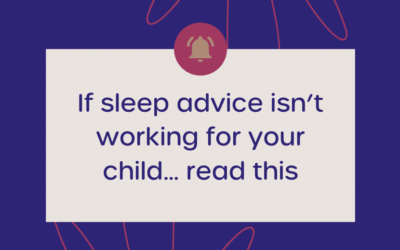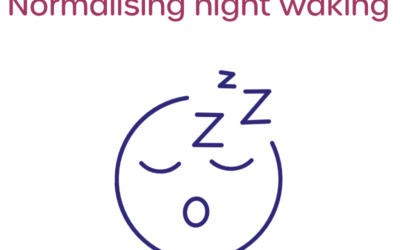The idea of “teaching” a baby or child to sleep can be misleading, as sleep is a biological process, not a skill that can be taught like walking or talking. Here are key reasons why you can’t truly teach a child to sleep:
1. Sleep is a Biological Process
Sleep is governed by biological rhythms, including circadian rhythms and homeostatic sleep drive. Babies’ and young children’s sleep patterns are dictated by their brain development and biology, not by external teaching. Over time, as their brains mature, they will naturally consolidate sleep into longer stretches.
2. Babies Have Different Sleep Cycles Than Adults
Babies and young children have shorter sleep cycles compared to adults. Their sleep is divided into lighter and deeper stages, and they wake frequently between cycles. Waking between sleep cycles is normal for babies and children, and it’s not something that can be trained out of them. Babies experience more REM sleep (the lighter stage of sleep) and shorter deep sleep cycles. These frequent arousals help ensure they are safe, fed, and cared for. It’s unrealistic to expect a baby to remain asleep for long stretches like an adult.
3. Children Need Comfort and Care at Night
Babies and young children often wake at night because they need comfort, food, or reassurance. These wake-ups are driven by their developmental needs, not a lack of “sleep skills.” Responding to a baby’s cries during the night helps build attachment and trust, ensuring their emotional and physical needs are met. Night wakings for hunger, comfort, or even a simple check for proximity to caregivers are natural.
4. Sleep Maturity Takes Time
Just like other developmental milestones, sleep patterns mature over time. Some babies sleep longer stretches earlier, while others take longer to sleep through the night. Expecting all babies to follow the same timeline for sleep is unrealistic.
5. Developmental Phases Affect Sleep
Developmental milestones, growth spurts, and teething can all disrupt sleep. During these phases, it’s natural for children to wake more often, even if they were previously sleeping longer stretches. These disruptions are temporary and can’t be “fixed” through teaching.
6. Teaching Sleep May Lead to Stress
Some sleep training methods, particularly those that involve leaving a baby to cry without comfort, can lead to increased stress for both the baby and the parents. This can be emotionally damaging, as babies depend on their caregivers for reassurance and comfort, especially at night.
7. Every Child is Unique
Each child has a unique temperament, sleep needs, and developmental timeline. What works for one baby might not work for another. There is no one-size-fits-all approach to sleep, and no method of “teaching” will universally apply to all children. A child with a sensitive temperament may need more nighttime comfort than a more independent sleeper. Trying to force a one-size-fits-all approach to sleep can lead to frustration and exhaustion for both parents and children.
8. Sleep is Connected to Feeding
Especially for younger babies, sleep is closely tied to feeding. Babies wake up to feed at night because they have small stomachs and need frequent nourishment. Even older babies may wake to feed for comfort, not because they need to be taught to sleep but because their feeding patterns naturally include night feeds. Night feeds are normal in babies under one year old, especially if they are breastfed. A baby waking to feed at night is following their natural needs, not failing to sleep correctly.
9. Creating a Safe Sleep Environment is More Important
Instead of teaching a baby to sleep, parents can focus on creating a consistent, loving, and safe sleep environment that encourages rest. This includes having a predictable bedtime routine, a comfortable sleep space, and responding to the baby’s needs promptly. A soothing bedtime routine with dim lights, a warm bath, and gentle rocking can help signal to your baby that it’s time to rest, but it won’t override their biological need to wake during the night.
10. Self-Soothing Takes Time
The ability to self-soothe develops gradually over time, and expecting babies to self-soothe too early is unrealistic. Babies often need help falling asleep or resettling after waking. It’s not something that can be taught; it happens naturally as a child’s brain and emotional regulation develop. A baby may rely on nursing, rocking, or being held to fall asleep because self-soothing mechanisms, such as sucking on a thumb or cuddling a comfort object, are not fully developed until later.
In conclusion, support, don’t teach
Rather than focusing on “teaching” a baby or child to sleep, it’s more helpful to create an environment that supports their natural sleep needs. This includes responsive parenting, establishing a consistent routine, and understanding that sleep will develop in its own time. Trusting your baby’s needs and being patient will create a foundation for healthy sleep without the need for formal teaching.
You know what we can teach though? That they are safe, that you will love, protect, nurture and support them to sleep for as long as they need.⠀⠀⠀⠀⠀⠀⠀⠀⠀
⠀⠀⠀⠀⠀⠀⠀⠀⠀
And that’s a pretty good lesson to learn.⠀⠀⠀




0 Comments